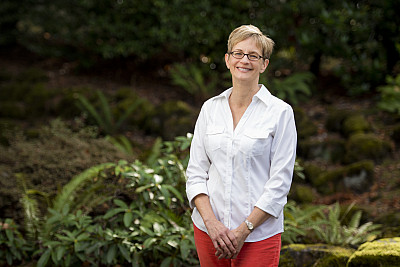Upon Retirement: Susan Glosser Reflects on Teaching Historical Empathy
Several longtime professors retired from Lewis & Clark this year. Check out the employee comings and goings archive for a full list of those who joined our community recently and those who said a fond farewell.

What was your path to Lewis & Clark?
I joined the History Department in 1995 directly after completing the doctoral program in Chinese history at UC Berkeley.
What was your favorite course(s) to teach?
I liked them all, but my favorites were:
- Making Modern China. I loved teaching the modern China course because it’s interesting in itself and because we cannot understand contemporary China without understanding its past. The relentless cycle of foreign invasion and exploitation that began with the Opium War (1839-1842) and ended only with the defeat of Japan in 1945 nearly destroyed a country that had been the most powerful and technologically advanced in the world. In the face of invasion and exploitation, China launched many political, economic, cultural, and legal reforms in hopes of creating a strong state that could expel the foreigners and return China to global preeminence. That project continues to this day. Without a historical perspective, we cannot hope to understand the People’s Republic of China.
- What’s for Dinner?: A History of Food. The food class was a lot of fun. Although we covered serious issues like food security, food is a topic that also brings a lot of joy. Discussions were lively because we were passionate about food and came at the topic from a variety of perspectives. In fact, the course was the most diverse in terms of majors. For example, the spring 2024 session pulled majors from Environmental Science, Psychology, Sociology/Anthropology, History, Theatre, Asian Studies, and Biology.
What did you enjoy most about your work?
I loved sharing sources with students that took us beyond the textbook. These included everything from divination records and manuals, love songs, poetry, art, everyday objects, propaganda pamphlets… My goal was to teach students what I call historical empathy—the ability to understand why people of different places and times believed and acted as they did.
I also enjoyed talking with students outside of class. These conversations were often the highlight of my day.
What changed the most during your time at the college? What remained constant?
The constant has been how delightful our students are. They are intellectually curious, friendly, and pursue a wide variety of interests both within and beyond the classroom. At graduation, I’m always sad to see students go, but heartened that these are the folks who will run the world one day.
Fashion is constant in its importance even as it changes. It has been a lot of fun to watch our students shapeshift through dress, ornamentation, music, sensibilities, and language.
As for change, technology has introduced big ones. The smart phone drastically reduced student interactions between, before, and even during class. But student sociability seems to be rebounding. I enjoy coming to a noisy classroom. It also seems clear that the social media that came with phones creates challenges to students’ ability to sustain attention in class, and to complete reading and assignments. AI has been a disaster for some students. This past year, I was saddened to find that a number of students turned in essays partly or entirely written by AI. But I’m hoping these are just bumps in the road as we adapt to new technology.
What’s something people might not know about you?
I guerilla garden for pollinators. Native asters, calendula, and crocuses are my favorites to deploy.
What is your favorite place on campus?
One was my office. The other is the section of the garden below the reflecting pool and the goldfish pond. Facilities Services has done such a wonderful job making the garden beautiful year round. And, of course, our beautiful library.
What are you most proud of?
I challenged students to do their best work, gave them honest feedback, and tried to make myself available for those who wanted help.
What’s next for you?
Many hours in Watzek and at my desk now that I have time to resume research on daily life in Shanghai under Japan’s occupation (1937-1945). I’ve already begun happily making my way through the stacks of books I’ve been wanting to read. Travel, more time with family and friends, and a lot of time in my garden are also on the list.
More The Source Stories
email source@lclark.edu

